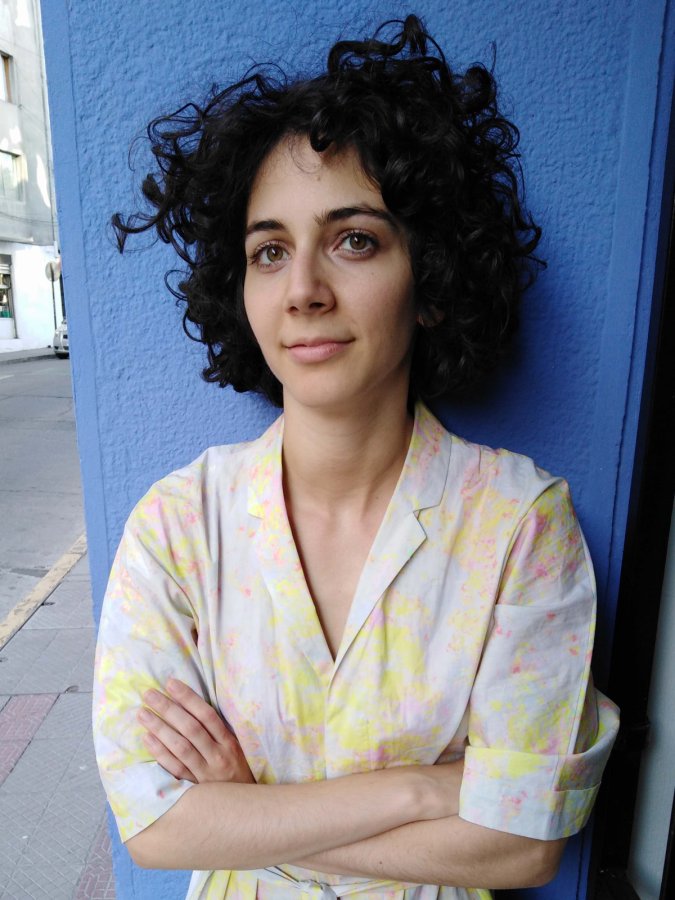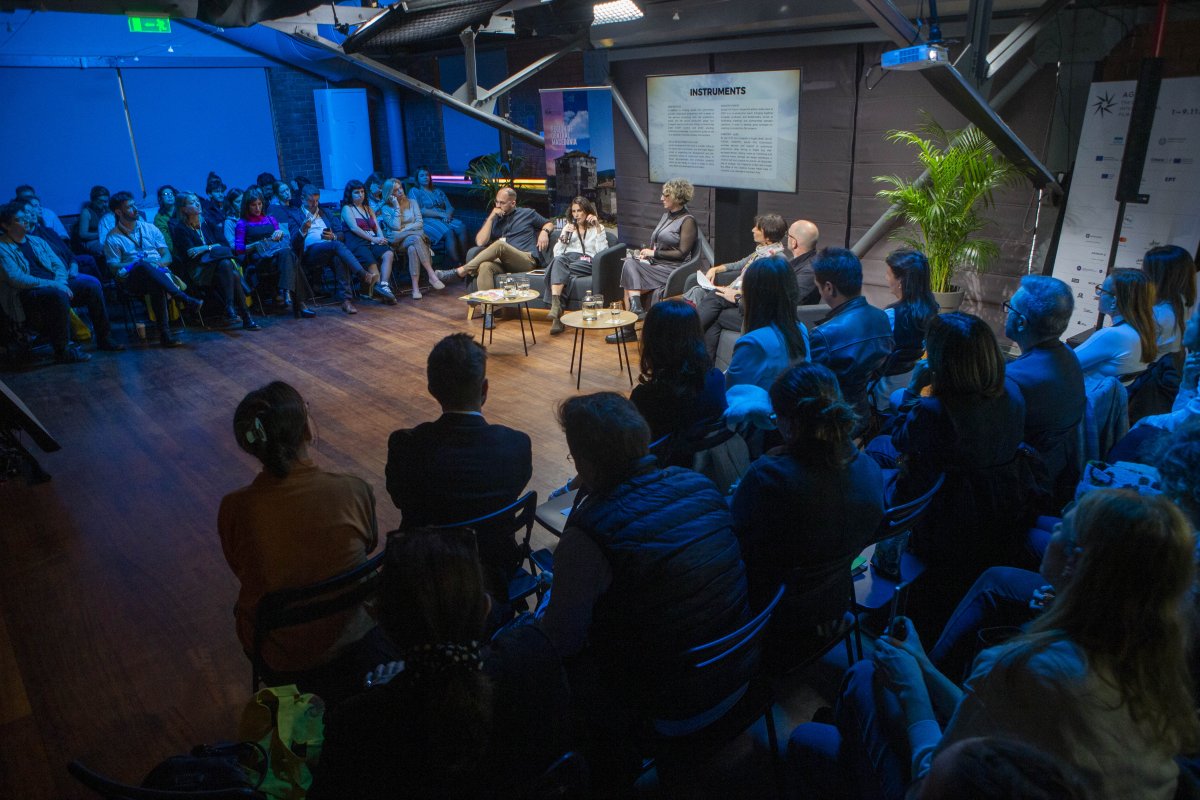Danish filmmaker Ole Christian Madsen gave a press conference on Monday, November 7, at the Thessaloniki Port Warehouse C, in the framework of the 52nd Thessaloniki International Film Festival. Present at the panel was TIFF director Dimitris Eipides. The 52nd TIFF is hosting a tribute to Madsen, who is one of the most prominent representatives of Danish cinema.
“We are happy to present the work of a very important Danish filmmaker. His films have attracted a wide audience in Thessaloniki, and this gives us great satisfaction”, said Mr. Eipides in his opening comments.
Ole Christian Madsen noted: “I am very happy and honored to participate in the 52d Thessaloniki International Film Festival with seven of my films. You know, I hadn’t watched some of them in almost ten years – actually I am under the impression that I am watching a new film or that someone else has made them”.
The Danish filmmaker referred to the second “golden age” of Danish cinema after the one that took place in the early 20th century, when “Denmark was the world’s largest film producing country. With the advent of sound film technology, everybody thought the Danish language was horrid; that is when we lost our primacy”, explained Mr. Madsen, adding: “In the mid-90s, the Danish school decided to abandon the dominant perception about the role of the director and his influence on the story, giving greater emphasis to the role of the audience in the narration. Audience engagement became a top priority. Regardless whether the film was dark, depressing or funny, its aim was always to engage the audience”. Madsen elaborated that anthropocentrism has consistently been the major characteristic of Danish films up to the present.
The director was asked about the manifest of Dogma ’95, since his film Kira’s Reason - A Love Story follows its principles. “The Dogma included many aspects. It led to the revival of Danish cinema, with low-budget movies, returning to the fundamentals of cinema, which are the story and the actor. The films made under the principles of the Dogma portray the lives of people with harsh realism”, explained the director. He also noted that the films following the Dogma principles were edited with the AVID system. This was the case for Kira’s Reason – A Love Story. The film’s length is one and half hour, while the director’s material was 230 hours. His next film after Kira’s Reason was Prague, followed by this year’s Superclasico: the central theme of all three movies is the development of a marriage, following diverging aesthetic principles. “The first film was a hard realism movie; the second was more theatrical and melodramatic, while the third was a comedy. At the time of Superclasico, I had reached a stage in my life, when human relations seemed to me funnier than anything else. Everything I did from dawn till dusk seemed to me ludicrous even if it were tragic – I wanted to change my point of view, I wanted something simple and primitive. I was in Argentina, attending a football game, when I decided to make my movie there, in this beautiful, low-key and funny country, which gave me a sense of liberation”, said the filmmaker.
Asked about the reasons why he chooses a different country every time he makes a new film, Madsen replied: “it is important, when you make a film, to focus all your energy in one place. I don’t want the actors and the crew to go back to their everyday routine after work, I want to isolate them, so that we can produce cinema 24 hours a day if possible; I want us to be in constant contact, focused 100% on what we are doing, living the tension of the moment. Because if you lose the moment, you cannot find it again, you cannot set up the camera again to capture it on film”.
In Madsen’s movies locations may change, but his cast of actors often stays the same. “You don’t have to change the actor to direct him in totally different roles. On the contrary, you have to respect his personality, because, as Stanislavski used to say “the actor does not so much become someone else as he becomes an extension of himself”. How you internalize a new way of thinking and a new mentality depends on the role and the film. If, for example, the film deals with the male-female relationship, before shooting starts I have long discussions with my actors on those issues. On the other hand, in my film Flame and Citron actors adopted a specific mentality based on the findings of research”, noted the director.
Flame and Citron was a commercial success, but it also provoked controversy in Danish society. Taking place during the Second World War, the film features two members of the Danish resistance, who execute Danes who had collaborated with the Germans. “World War II is a sensitive issue that has never been openly discussed in Denmark. Most Danes collaborated with the Germans, because they thought that saving Denmark meant surrendering the country to the Germans. I knew I would provoke the public’s reactions, but their intensity really took me by surprise. Most viewers, when watching a film, want to confirm their beliefs. In this case, they wanted to see good Danes kill bad Germans, whereas my film portrays a gray area of ethics. The film met with great success outside Denmark, but in Denmark the controversy in the press raged for three months. We presented the truth as we believe it to be, but a film never captures the whole truth – it gives merely an aspect of it”, underlined Mr. Madsen.
The director went on to talk about the funding problems faced by the cinema industry today. “The writing of the script for Flame and Citron started nine years ago. Back then, no one was interested in funding a film about World War II – it was considered a forgotten subject. German investors provided the bulk of our 9 million euros budget. Right now, no European film can secure funding of that scale – liquidity is short and risk adversity on the rise. Currently, the budget for a European production is half the one of Flame and Citron at best”, said the Danish director, adding: “The European cinema industry is on the brink of collapse, and we need to find a solution to improve its finances. We should also try, perhaps, to depart from the dullness of social realism and discover a new type of realism”.
Talking about his plans, the director revealed that he is working on two new projects. “The first film will narrate the story of two of the first beatniks in Europe, a famous rock poet and his girlfriend, who died at age 25 in India, having first traveled around the globe”. The second one is “a smart thriller with a complex plot, with American funding and actors”.















